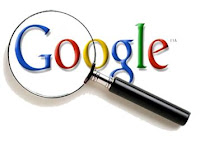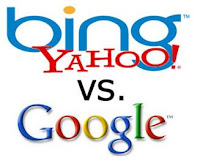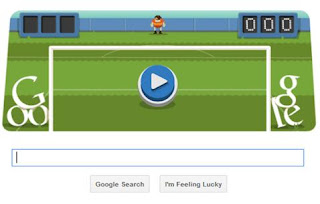Hello and welcome to the PaulSearch blog!
You've found this blog because you are interested in all things Pay Per Click (or PPC as it's better known). So who are PaulSearch you might ask?
Well, it all started many years ago. I worked in a High Street bank, where life was alright but not too exciting, when I found an advert in the local paper to join a online marketing company. It sounded interesting, so applied and went for the interview. To my surprise, I got the job!
It was weeks before I actually knew what it was the company did...everyone asked what I did, and all I could answer was "something to do with Search Engines". This answer got some very odd reactions. "You don't know what it is you do?" they asked.
Once I did understand what the company did, remember that back in 2002 search marketing was very new and no one had really heard of Google, I really enjoyed it.
The company grew and grew, and I grew with it. It was a private company with a great team. The MD was fantastic and the only salesman we had. He had a hit list of companies he wanted to work with, and to be honest, pretty much got every one!
Fast forward a few years, and I moved around a bit, working for some of the largest Search and Media Agencies in the country. They had all types of clients,
ranging from blue chip multi-nationals to smaller independent companies, some
spent £1000’s a day, some £10, the spectrum of previous clients is
immense. The great thing about PPC is
that it can work regardless of the size of your business.
My knowledge of Pay Per Click management goes back to the
days when only experienced internet users searched on Google. Most people used Yahoo or MSN. How things have changed! Now if you’re not in the Google results
you’ll be missing out on a ton of traffic.
Bing has now merged with Yahoo and with the advent of social media; even
Facebook has got in on the act and has a PPC offering.
I am based in a town called Telford; it’s in Shropshire,
between Wolverhampton and Shrewsbury, north of Birmingham. But that shouldn’t limit me working with
you! PPC campaigns can be run anywhere,
at any time. That’s one of the many
great things about running a Pay Per Click campaign. Even now, when I can see sales being recorded
it gives me a buzz, a little geeky some would say, but hey, I take pride in my
work and that shows by the efforts I make to manage PPC campaigns.
So, if you are thinking of Pay Per Click advertising, then
why not get in touch? Use the contact us form on the website, email or phone using the contact
details. I’m sure we can get your
company, products or service in the search results and increase traffic, sales
and revenue by using Pay Per Click advertising.
















